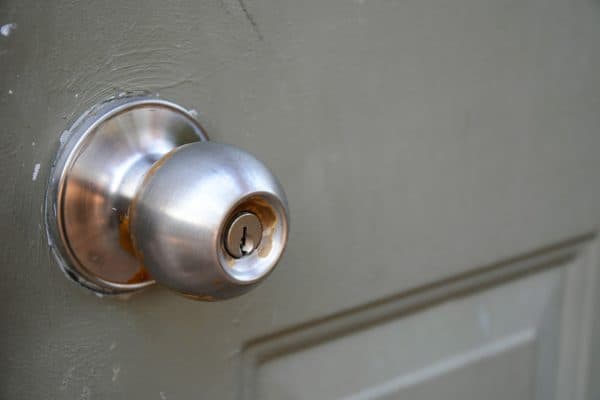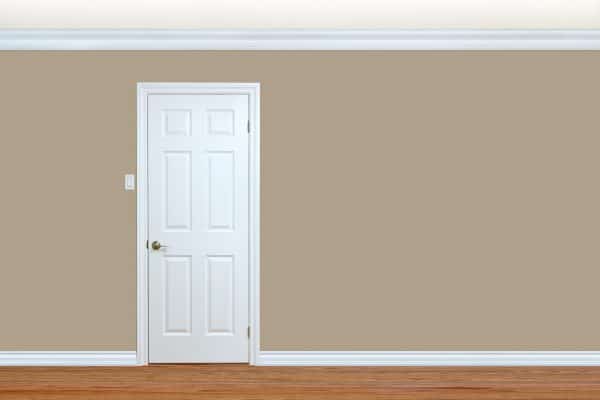Wood doors are one of the go-to options for many people because of their thickness and density. But if you would like to reduce noise, is it suggested to install a wooden door? To answer your question we carried out extensive research; these are our findings.
When it comes to soundproofing a space with the largest opening, a door made of solid wood is one of the most effective methods. Since this is also the most expensive method of soundproofing a door, it is possible that individuals who are working with a limited budget might consider other soundproofing alternatives, such as fiberglass doors.
Keep reading till the end to understand how wood doors restrict noise and other cheaper alternatives to this option
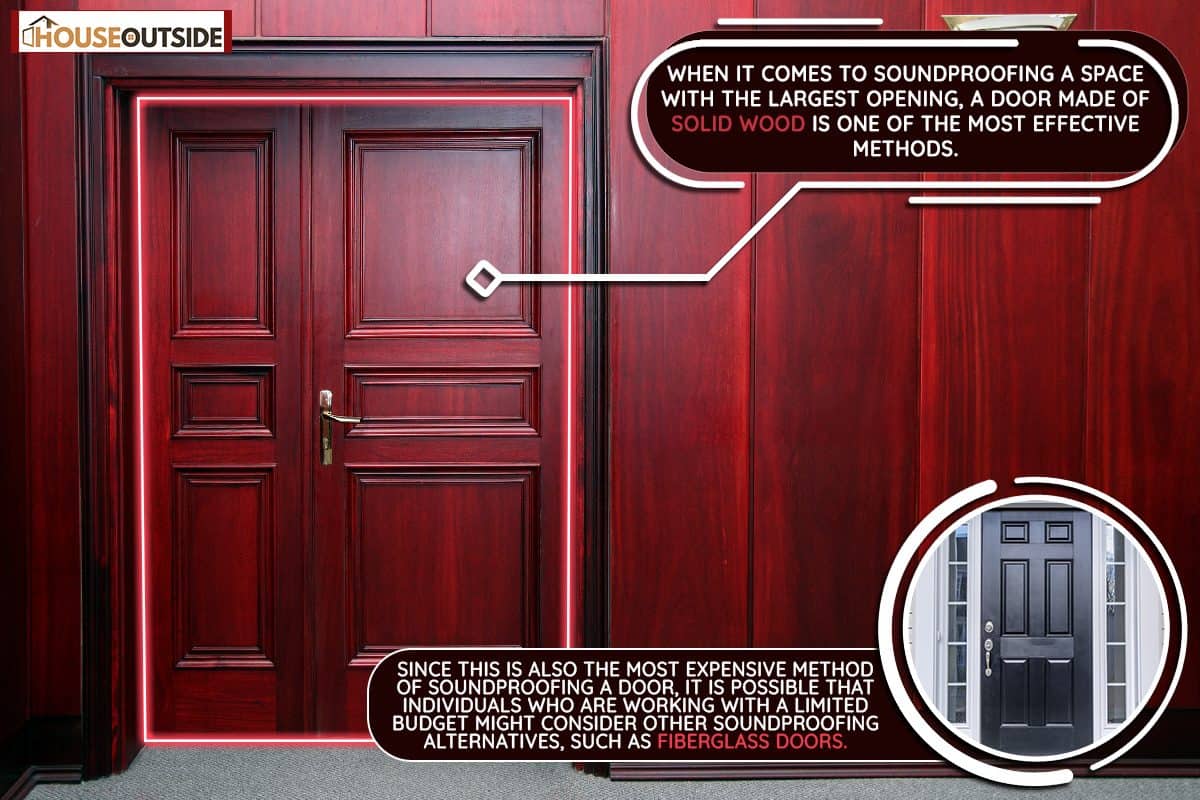
Do Wood Doors Reduce Noise? [How It Works]
Although there are other more efficient door materials for noise reduction, wood is a good option. This also depends on the level of thickness of the wood.
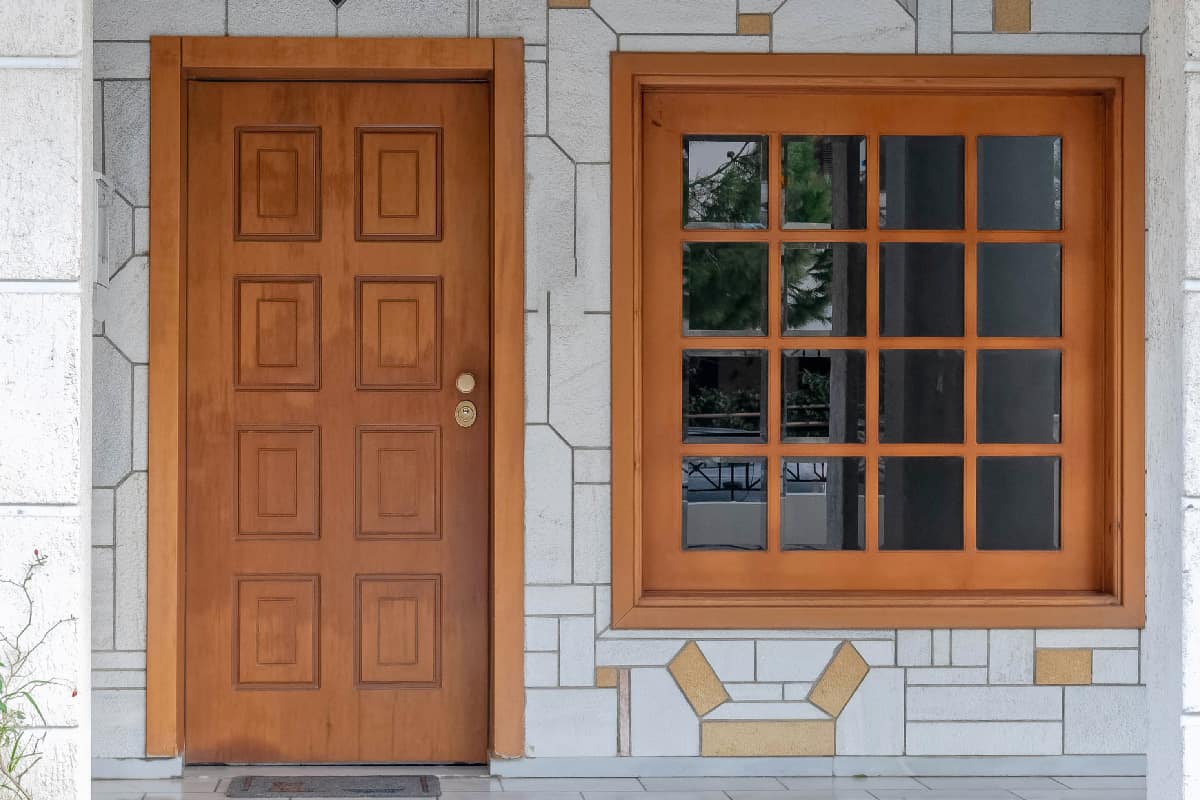
The surfaces of some doors are covered with veneers of extremely thin wood. Since they are constructed similarly to drums, there is not much that can stop the movement of sound because it has thin surfaces and an air-filled core.
Because of their greater density, solid-core doors can be used either on the interior or exterior of a building to more effectively block noise.
What Is The Best Door For Noise Reduction?
If the foam used in the construction of a fiberglass door has a high density, the door will be one of the most insulating and soundproof options available.
Fiberglass doors have some kind of foam at their core, which gives them the potential to be extremely well insulated. On the other hand, installing a door made of solid wood is one of the most effective ways to soundproof the opening that is the largest in the room.
The negative is that it's also one of the most expensive options to soundproof a door, so those on a budget may not be able to afford this solution. The majority of contemporary houses have doors that are hollow throughout the house.
Do Solid Doors Help With Sound?
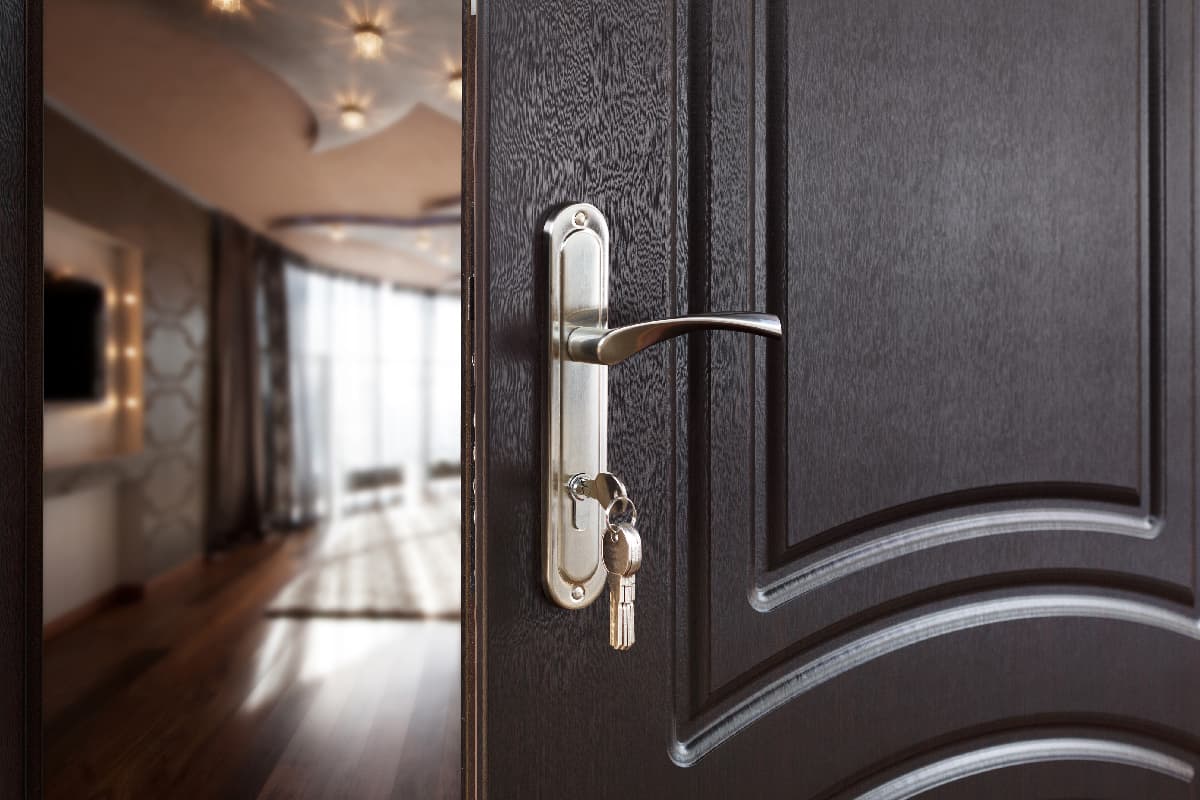
Since they are constructed similarly to drums, there is not much that can stop the movement of sound because it has thin surfaces and an air-filled core. Because of their greater density, solid-core doors can be used either on the interior or exterior of a building to more effectively block noise.
Doors with a solid core are an excellent choice for any area of the house in which you desire a higher-quality option.
You should consider installing solid core doors in areas of your home such as your bedrooms, bathrooms, and home offices because they are ideal for settings in which you might desire a little bit more privacy and sound insulation.
Are Heavier Doors More Soundproof?
When it comes to noise reduction, a door's thickness directly correlates to how well it performs. When compared to a thick door with a solid core, choosing a door that is lightweight, hollow, and thin will not provide any soundproofing qualities.
The vast majority of doors are not constructed to reduce noise, but there are certain decisions you may make to acquire a door that attenuates airborne noise to some degree. When it comes to soundproofing the space with the largest aperture, a door made of solid wood is one of the most effective methods.
Should Bedroom Doord Be Hollow Or Solid?
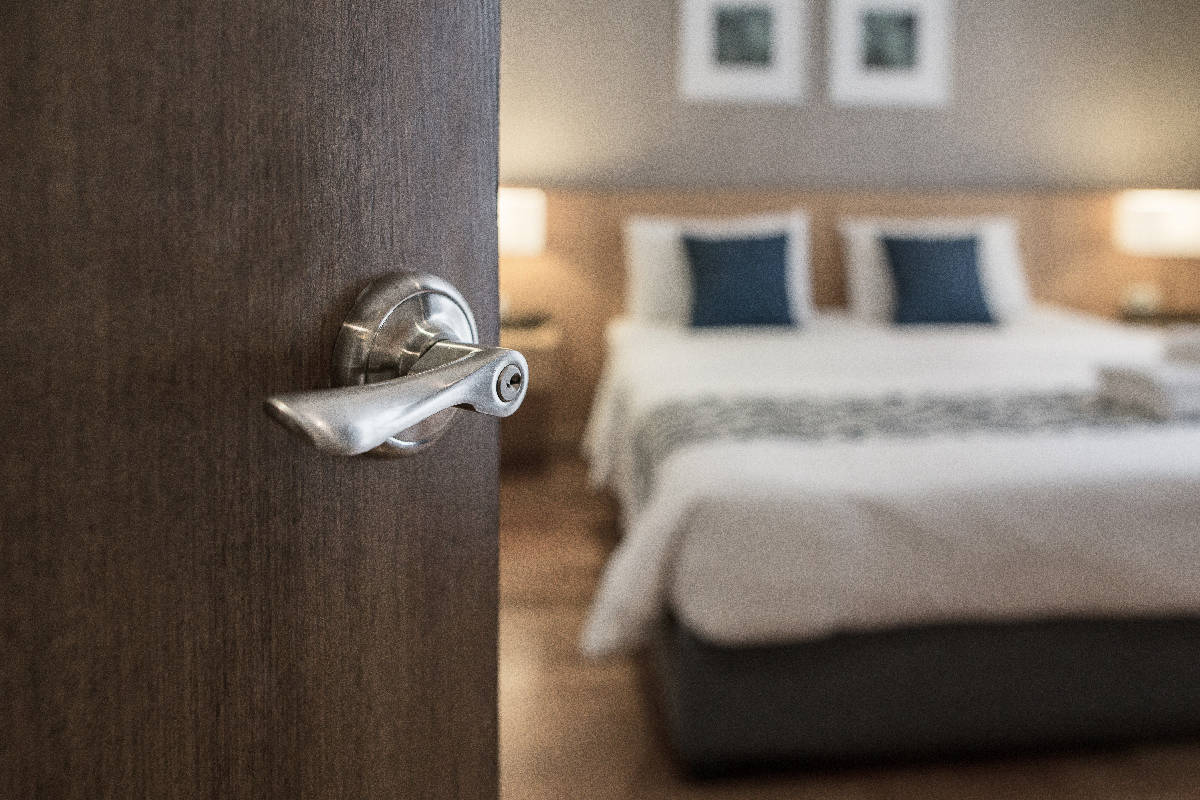
Doors with a solid core are an excellent choice for any area of the house in which you desire a higher-sound proofing solution.
Solid core doors have a higher perceived value, are made of a material that is of a higher quality and is more durable, and are significantly better at insulating against sound and heat. Hollow core doors, on the other hand, are less expensive, lighter, and easier to install.
Is It Worth It To Get Solid Core Doors?
Yes, solid core doors are worth it. Although they are more expensive than hollow doors, but in the long run, purchasing solid core doors will save money because they are more durable and won't need to be replaced as often.
If you don't want to keep replacing your door every few years, investing in a solid core will be the best financial decision you can make.
Doors with a solid core provide exceptional soundproofing and insulation, and their designed construction renders them impervious to the expansion and contraction that solid timber doors endure as a result of changes in humidity.
Solid core doors also look and feel more like traditional wooden doors. Doors with solid cores are not only robust and weighty but also typically have a high level of fire resistance.
What Is The Difference Between a Solid Wood and a Solid Core Door?
Solid core doors provide great soundproofing and insulation, and because of their engineering design, they are immune to the expansion and contraction that changing humidity causes in solid wood doors. Strong, heavy, and frequently have a high level of fire resistance are solid core doors.
Solid core doors are made of wood and have a wood frame around a wood core made of wood or a wood-composite substance.
Solid core doors are frequently utilized in business settings, especially in the hallways of tall office buildings. They are made entirely of unaltered natural wood. The type of wood used might range from softwoods like pine to hardwoods like maple or oak.
How Can I Soundproof My Bedroom Door?
Here are ways to soundproof your bedroom door
Add Soundproofing Rubber to the Door's Perimeter
If your door already has molding around it, you’ll need to pry it off. Then, add the soundproofing rubber around the door’s edges.
Add acoustical caulk or an insulating sealant to fill in small gaps and cracks to add even more sound protection.
If you want to find out where the cracks are, you should turn off the lights in the room and observe where the light from the outside is getting in.
Install Door-Sealing Strips on Front and Back Doors
If you install soundproofing rubber, you will also need to fill in the spaces between the door and the doorframe. Utilizing weatherstripping, which is typically used to insulate doors and windows from the elements, is one of the simplest ways to accomplish this goal.
Always remember to apply the appropriate amount of pressure when installing weatherstripping around your door. Because of the pressure, an airtight and soundproof door seal can form, which in turn blocks the passage of sound waves.
See weatherstripping (various widths available) on Amazon.
Add a Door Gasket
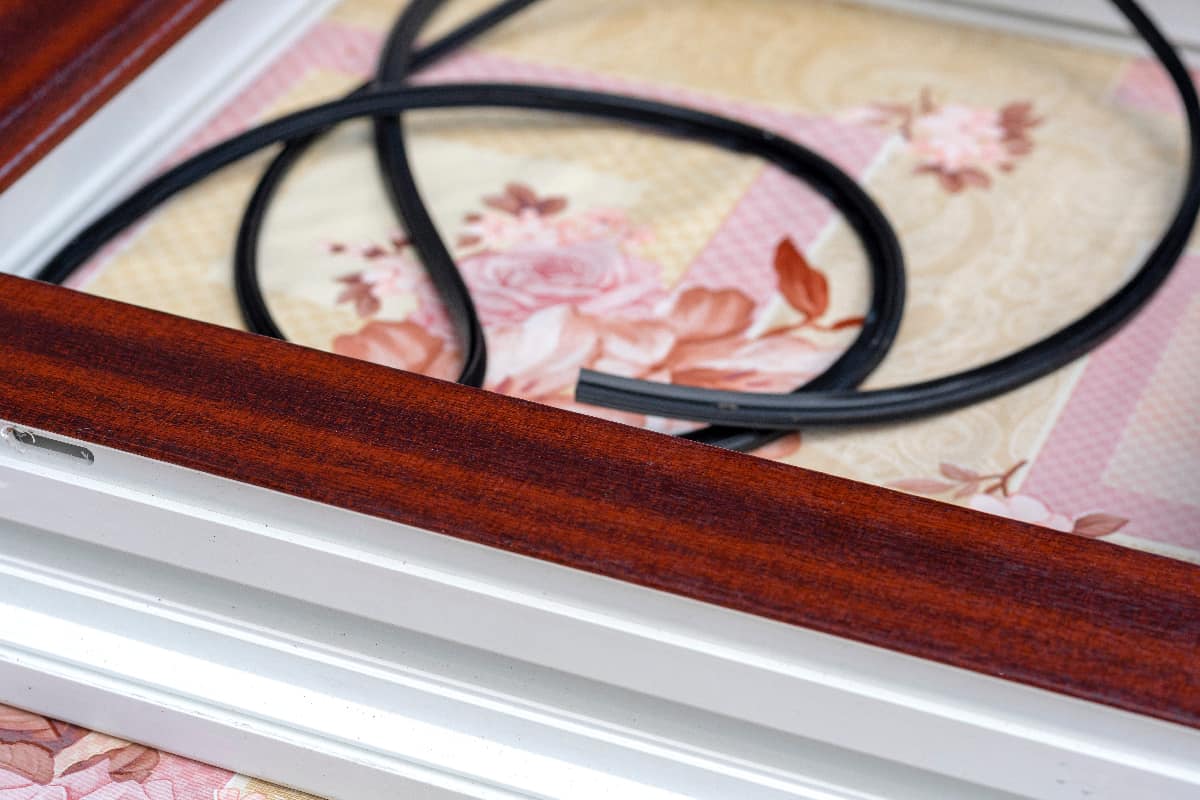
A door gasket, much like weatherstripping, serves to fill in the spaces that are left between the door and the door frame.
To produce a reliable and durable seal, door gaskets are designed to be fastened indelibly to the top and sides of the door jamb. Being able to adjust your gasket to achieve the best possible fit is one of these benefits.
Install a Door Sweep Directly Beneath The Doorway
This step is vital for closing the wide gap that lies at the bottom of many doors. If your door has a gap at the bottom, it doesn't matter how many gaskets or paneling you put on it; a significant amount of sound will still be able to pass through it.
Installing a door sweep on the bottom of the door will prevent this from occurring by closing the gap caused by the door and blocking the passage of sound waves.
Installing soundproof door sweeps requires some effort, as well as the use of a drill and screws, but the significant improvement in soundproofing is frequently well worth the trouble.
See this 3M adhesive door sweep on Amazon.
Install an Automatic Door Sweep
You can even install a door sweep that operates automatically. The movement of this type of door sweep is controlled by a mechanism that looks like a flat spring but is concealed.
When the door is open, the sweep is positioned so that it is raised above the level of the floor; however, when the door is closed, it is lowered to create a tight, soundproof seal with the floor.
See this automatic door sweep on Amazon.
Install Soundproofing Panels Into The Door
You could try installing an acoustic door panel instead of several soundproofing elements on your door if the thought of doing so is too labor intensive.
These panels are an upgrade from simply gluing a sheet of plywood to your door, but they are typically more affordable than high-end solutions such as fiberglass soundproofing blankets.
One way to soundproof your door is to use these panels. They are available in a variety of materials, the most common of which is foam, but other options include solid wood.
Your door will be more soundproof as a result of its ability to lessen the amplitude of the sound waves that travel through them.
Conclusion
To cap it all off, it is important to soundproof the room if you want to live peacefully without the stress and disturbances that come with noise. Soundproofing is never a bad idea. It is always aimed at improving the quality of living and also making the home a more pleasant place to stay.
For more on doors, check out these articles:




